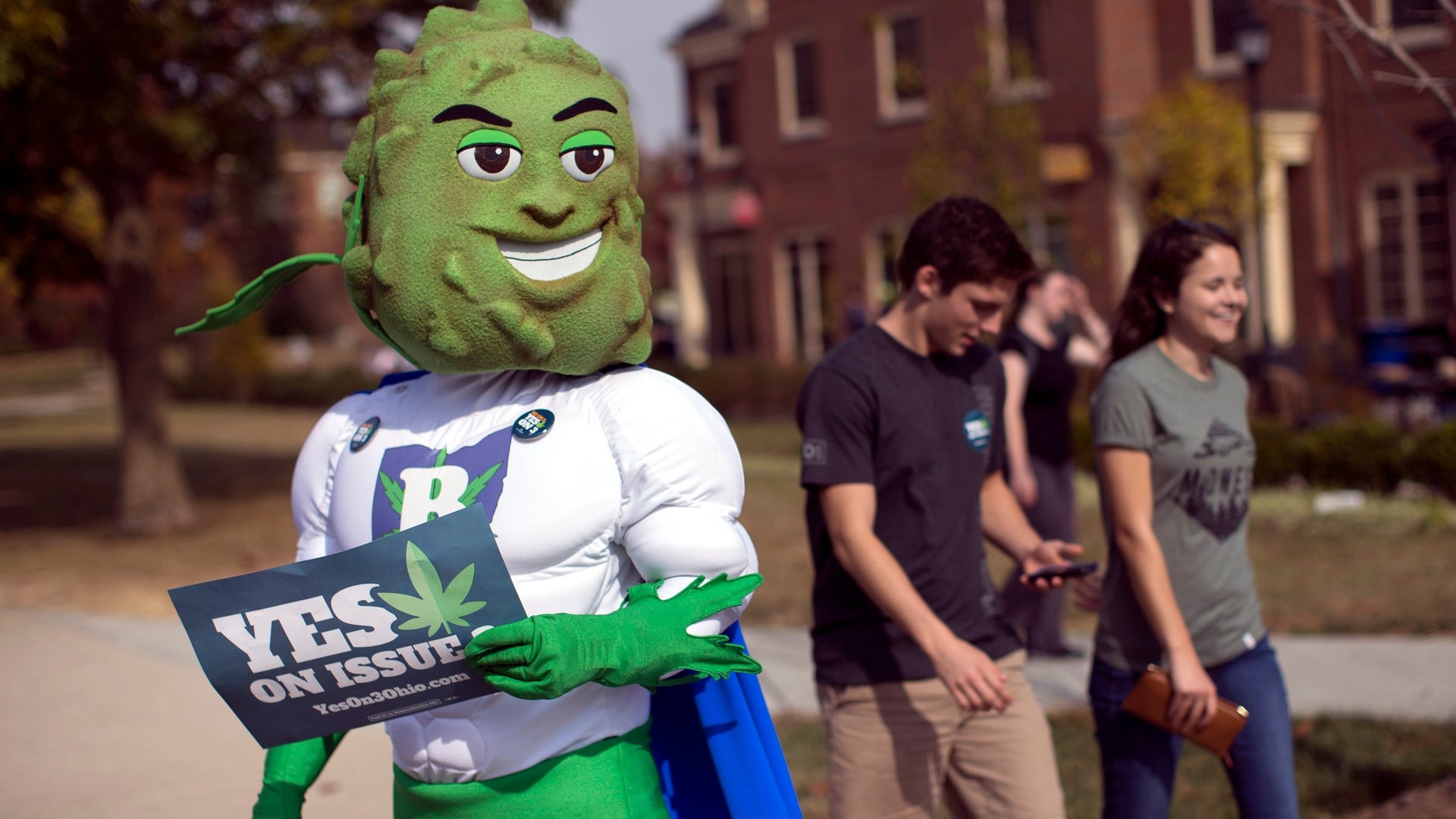The next US state voting to legalize pot would also create the first marijuana grower monopoly
Voters in Ohio will have a chance tomorrow (Nov. 3) to make the Buckeye state the first in the US to authorize recreational marijuana use without approving medical licensing first.


Voters in Ohio will have a chance tomorrow (Nov. 3) to make the Buckeye state the first in the US to authorize recreational marijuana use without approving medical licensing first.
But it also would grant complete control over the cultivation of the cash crop to the consortium of deep-pocketed investors promoting the popular referendum, a development that has even some advocates of legal marijuana skeptical of the initiative, the New York Times reports.
The bill is estimated to produce $133 million to $293 million in tax revenue for Ohio each year, but it is opposed by the state legislature, which is promoting an alternate ballot measure to contravene the bill. Also in the opposition camp: Ohio governor John Kasich, who is running for president and recently underscored his opposition to legal marijuana, in a debate with his fellow Republican candidates.
The measure puts marijuana advocates in a tight spot. Some national marijuana groups have stayed neutral on the measure, while others have given it a reluctant endorsement. (While marijuana technically remains illegal at the federal level, a number of states have legalized it for medical and now recreational purposes, creating a patchwork of laws in a legal grey area.)
Those who support legal marijuana share a variety of motivations—recreational and medical use, the potential for profit, the appalling consequences of the US war on drugs—and hope that a regulated marijuana industry could learn from public policy mistakes in the alcohol and tobacco sectors.
But awarding exclusive control of a state marijuana market to a single group echoes of the lucrative, state-granted alcohol distribution monopolies, which have proven a powerful source of opposition to taxing and regulating alcohol use.
“[Alcohol] distributors are fantastically powerful; state legislatures basically vote distributors the license to print money,” UCLA public policy professor Mark Kleiman, who helped design Washington state’s marijuana regulations, told Quartz earlier this year.
The Ohio bill would authorize 10 production facilities to serve as the only legal sources of marijuana within the state—and the land for these parcels is owned by the backers of the proposition. These facilities would be exempt from local regulation and taxed at a level set by the referendum.
The referendum backers, known as ResponsibleOhio, deny that this would create any kind of monopoly or cartel, noting that licensed individuals could grow up to four plants apiece, and that the retail and manufacturing businesses will ostensibly be owned by other parties. But the state department of taxation, attempting to forecast the revenue (pdf) generated by the law, warned that vertical integration is possible between the industrial farms and the retail outlets for the drug, which would reduce the amount of money flowing into the public coffers.
Meanwhile, ResponsibleOhio’s marketing tools, including a college campus-visiting mascot named “Buddie,” have drawn unflattering comparisons to the tobacco industry’s attempt to market cigarettes to children.
If the measure succeeds, you can expect the model to be exported: The campaign is being coordinated by a company called the Strategy Network, which specializes in the signature-gathering and electioneering necessary to win popular referendums. If investors in Ohio can vote themselves a lucrative cash-crop monopoly, profit seekers in other US states are sure to follow.